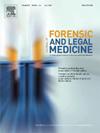俄罗斯法医学:制度演变、操作矛盾及其影响
IF 1.2
4区 医学
Q3 MEDICINE, LEGAL
引用次数: 0
摘要
本文首次用英文详细分析了俄罗斯的法医制度,探讨了其历史发展和制度设计。俄罗斯的法医专家在刑事和民事诉讼中发挥着关键作用。由于俄罗斯帝国和苏联的历史根源,目前的制度是建立在一个综合的、以警察为基础的模式上的。俄罗斯法医确保了专业化和标准化,但也面临着资金不足和工作量过大等挑战。该报告强调了资金不匹配:尽管主要受益者是联邦执法部门和法院,但地区卫生保健当局负责为法医服务提供资金。这造成了系统性的组织缺口,包括资源短缺、基础设施过时和人员过度劳累,从而影响了法医检查的质量和效率。通过解决制度路径依赖以及法医学与司法和执法系统的耦合问题,本研究为后苏联国家法医学实践的比较研究提供了有价值的见解。本文章由计算机程序翻译,如有差异,请以英文原文为准。
Russian forensic Medicine: Institutional evolution, operational contradictions, and their implications
The article provides the first detailed English-language analysis of the forensic medical system in Russia, exploring its historical development and institutional design. Forensic medical experts in Russia play a crucial role in criminal and civil proceedings. With historical roots in the Russian Empire and the Soviet Union, the current system is built on an integrated and police-based model. Russian forensic medicine ensures professional specialization and standardization, but it faces challenges such as underfunding and excessive workloads. The paper highlights a funding mismatch: regional healthcare authorities are responsible for financing forensic medical services even though the primary beneficiaries are federal law enforcement and the courts. This produces systemic organizational gaps—including resource shortages, outdated infrastructure, and overworked personnel—that affect the quality and efficiency of forensic examinations. By addressing institutional path dependence and the coupling of forensic medicine with judicial and law enforcement systems, the study offers valuable insights for comparative research on forensic practices in post-Soviet countries.
求助全文
通过发布文献求助,成功后即可免费获取论文全文。
去求助
来源期刊

Journal of forensic and legal medicine
MEDICINE, LEGAL-
CiteScore
2.70
自引率
6.70%
发文量
106
审稿时长
57 days
期刊介绍:
The Journal of Forensic and Legal Medicine publishes topical articles on aspects of forensic and legal medicine. Specifically the Journal supports research that explores the medical principles of care and forensic assessment of individuals, whether adult or child, in contact with the judicial system. It is a fully peer-review hybrid journal with a broad international perspective.
The Journal accepts submissions of original research, review articles, and pertinent case studies, editorials, and commentaries in relevant areas of Forensic and Legal Medicine, Context of Practice, and Education and Training.
The Journal adheres to strict publication ethical guidelines, and actively supports a culture of inclusive and representative publication.
 求助内容:
求助内容: 应助结果提醒方式:
应助结果提醒方式:


